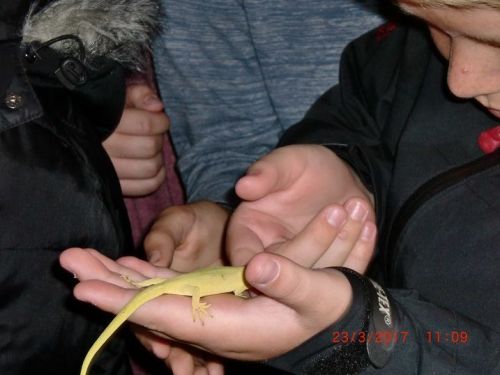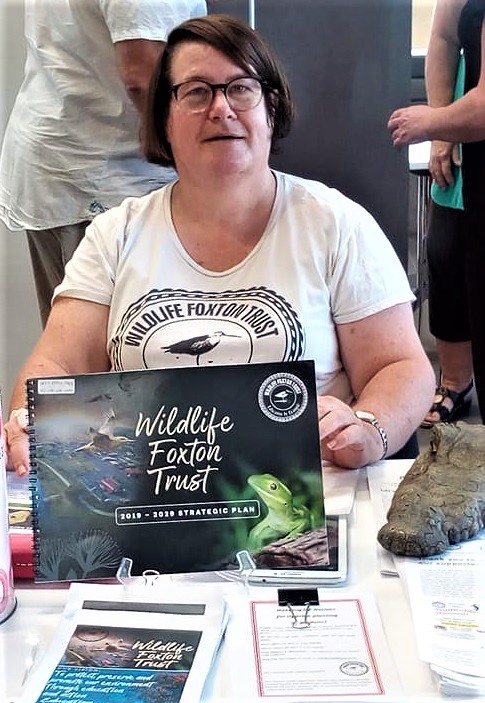By Pooja Jayan, Manawatū River Source to Sea.
Nola Fox ventured into volunteering with non-profits over thirty years ago. Since then, there has been no looking back as she believes communities are what you put into them. Nola’s dedication to the natural environment is demonstrated through her efforts in educating the public about New Zealand’s lesser known native species and setting an example for the young generation to emulate.
Presently, Nola volunteers with Wildlife Foxton Trust, with the mission of ‘Education by Example’. The Trust was set up with the vision of having an environmental centre in Foxton that would provide education around native species and also grow into an environmental hub for all aspects of environmental protection. Since its inception, Wildlife Foxton Trust has been nurturing native gecko and fish species and holding school visits. The Trust is trying to be self-sufficient to augment the tourism side of Foxton, which will facilitate more conservation efforts in the region.
Nola oversees the caring for various species, so much so that she instantaneously recalls just how many the Trust is presently protecting. Wildlife Foxton Trust is a veritable hot spot for a variety of species and educates visitors about various species like lizards, geckos, environment and animal habitats.
“The best part of hosting the display is the ability to interact with school children and make them understand the environment around us and the damage caused by exotic species to the natives. We currently have a de-sexed baby possum, he is lovely and cuddly, but children need to understand the damage he can cause.”
“The school curriculum doesn’t easily allow for interactive participation with the environment. We learn about birds, kiwi, and plants in school; but our native reptiles and insects are not included much in the curriculum. The Trust provides a considerable value by educating school children about such species.” She hopes it will foster a sense of guardianship of the land.
As the government make quick, sweeping changes in response to the pandemic, Nola wonders whether the non-profit organisations working around environmental protection will be considered as so far no funding has been allotted to such organisations solely running on volunteers crippled by the COVID-19. Further, she adds that the Wildlife Foxton Trust is confronted with long term challenges like lack of permanent shelter and funding opportunities.
Nola believes that organisations like Manawatū River Source to Sea are channelling the potential of environmental groups co-ordinating and linking the working of restoring ecosystems. Collectively, all the volunteering efforts build the health of our environment. Hence, Nola urges people to roll up their sleeves and keep volunteering.


